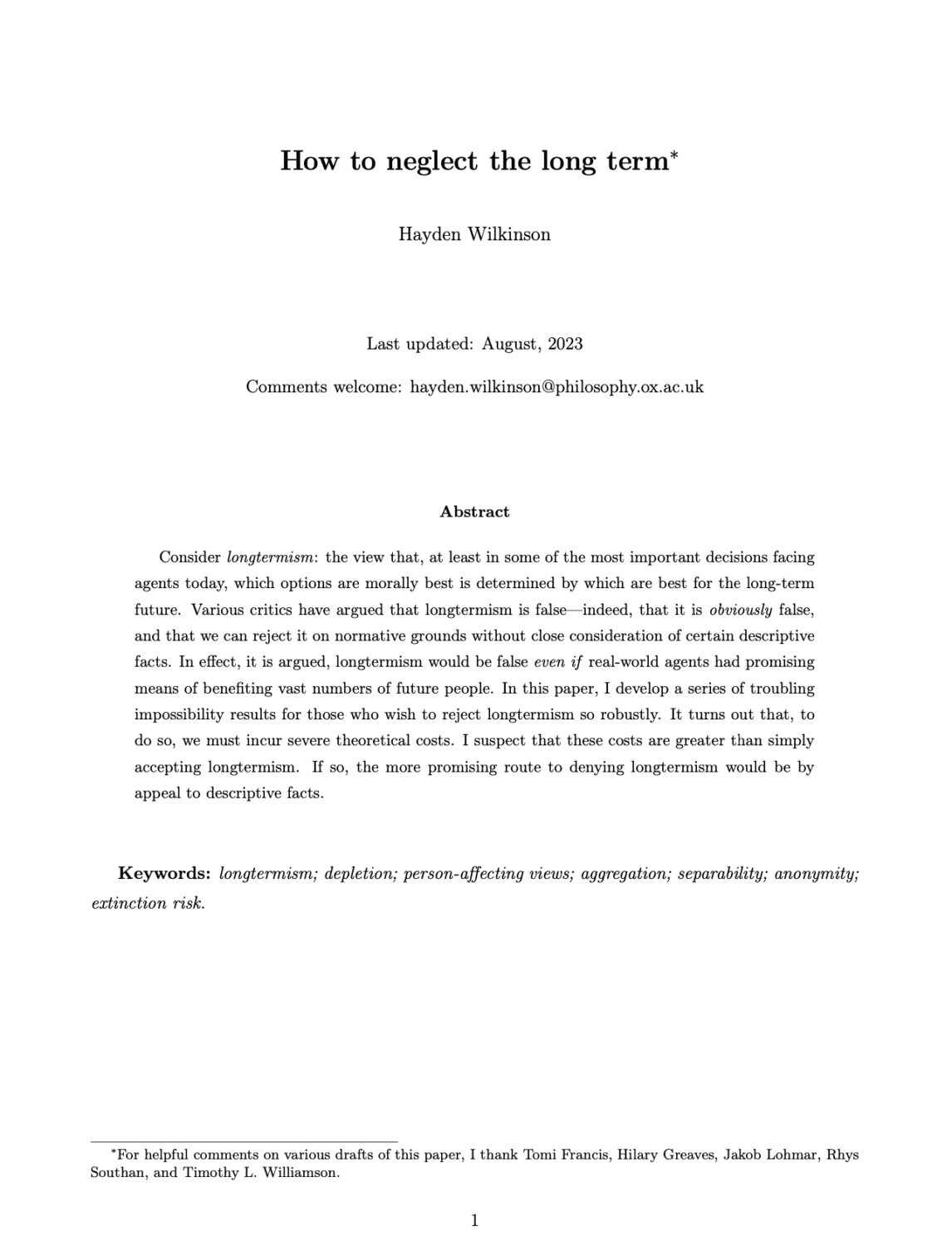How to neglect the long term
Hayden Wilkinson (Global Priorities Institute, University of Oxford)
GPI Working Paper No. 11-2023
Consider longtermism: the view that, at least in some of the most important decisions facing agents today, which options are morally best is determined by which are best for the long-term future. Various critics have argued that longtermism is false—indeed, that it is obviously false, and that we can reject it on normative grounds without close consideration of certain descriptive facts. In effect, it is argued, longtermism would be false even if real-world agents had promising means of benefiting vast numbers of future people. In this paper, I develop a series of troubling impossibility results for those who wish to reject longtermism so robustly. It turns out that, to do so, we must incur severe theoretical costs. I suspect that these costs are greater than simply accepting longtermism. If so, the more promising route to denying longtermism would be by appeal to descriptive facts.
Other working papers
Is Existential Risk Mitigation Uniquely Cost-Effective? Not in Standard Population Models – Gustav Alexandrie (Global Priorities Institute, University of Oxford) and Maya Eden (Brandeis University)
What socially beneficial causes should philanthropists prioritize if they give equal ethical weight to the welfare of current and future generations? Many have argued that, because human extinction would result in a permanent loss of all future generations, extinction risk mitigation should be the top priority given this impartial stance. Using standard models of population dynamics, we challenge this conclusion. We first introduce a theoretical framework for quantifying undiscounted cost-effectiveness over…
Time discounting, consistency and special obligations: a defence of Robust Temporalism – Harry R. Lloyd (Yale University)
This paper defends the claim that mere temporal proximity always and without exception strengthens certain moral duties, including the duty to save – call this view Robust Temporalism. Although almost all other moral philosophers dismiss Robust Temporalism out of hand, I argue that it is prima facie intuitively plausible, and that it is analogous to a view about special obligations that many philosophers already accept…
The end of economic growth? Unintended consequences of a declining population – Charles I. Jones (Stanford University)
In many models, economic growth is driven by people discovering new ideas. These models typically assume either a constant or growing population. However, in high income countries today, fertility is already below its replacement rate: women are having fewer than two children on average. It is a distinct possibility — highlighted in the recent book, Empty Planet — that global population will decline rather than stabilize in the long run. …

